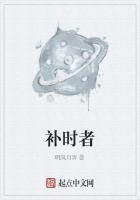IN A FORMER part of this work we saw that, in the opinion of primitive people, the soul may temporarily absent itself from the body without causing death. Such temporary absences of the soul are often believed to involve considerable risk, since the wandering soul is liable to a variety of mishaps at the hands of enemies, and so forth. But there is another aspect to this power of disengaging the soul from the body. If only the safety of the soul can be ensured during its absence, there is no reason why the soul should not continue absent for an indefinite time; indeed a man may, on a pure calculation of personal safety, desire that his soul should never return to his body. Unable to conceive of life abstractly as a permanent possibility of sensation or a continuous adjustment of internal arrangements to external relations, the savage thinks of it as a concrete material thing of a definite bulk, capable of being seen and handled, kept in a box or jar, and liable to be bruised, fractured, or smashed in pieces. It is not needful that the life, so conceived, should be in the man; it may be absent from his body and still continue to animate him by virtue of a sort of sympathy or action at a distance. So long as this object which he calls his life or soul remains unharmed, the man is well; if it is injured, he suffers; if it is destroyed, he dies. Or, to put it otherwise, when a man is ill or dies, the fact is explained by saying that the material object called his life or soul, whether it be in his body or out of it, has either sustained injury or been destroyed.
But there may be circumstances in which, if the life or soul remains in the man, it stands a greater chance of sustaining injury than if it were stowed away in some safe and secret place. Accordingly, in such circumstances, primitive man takes his soul out of his body and deposits it for security in some snug spot, intending to replace it in his body when the danger is past.
Or if he should discover some place of absolute security, he may be content to leave his soul there permanently. The advantage of this is that, so long as the soul remains unharmed in the place where he has deposited it, the man himself is immortal; nothing can kill his body, since his life is not in it.
Evidence of this primitive belief is furnished by a class of folk-tales of which the Norse story of The giant who had no heart in his body is perhaps the best-known example. Stories of this kind are widely diffused over the world, and from their number and the variety of incident and of details in which the leading idea is embodied, we may infer that the conception of an external soul is one which has had a powerful hold on the minds of men at an early stage of history. For folk-tales are a faithful reflection of the world as it appeared to the primitive mind; and we may be sure that any idea which commonly occurs in them, however absurd it may seem to us, must once have been an ordinary article of belief. This assurance, so far as it concerns the supposed power of disengaging the soul from the body for a longer or shorter time, is amply corroborated by a comparison of the folk-tales in question with the actual beliefs and practices of savages. To this we shall return after some specimens of the tales have been given. The specimens will be selected with a view of illustrating both the characteristic features and the wide diffusion of this class of tales.
In the first place, the story of the external soul is told, in various forms, by all Aryan peoples from Hindoostan to the Hebrides. A very common form of it is this: A warlock, giant, or other fairyland being is invulnerable and immortal because he keeps his soul hidden far away in some secret place; but a fair princess, whom he holds enthralled in his enchanted castle, wiles his secret from him and reveals it to the hero, who seeks out the warlock's soul, heart, life, or death (as it is variously called), and by destroying it, simultaneously kills the warlock. Thus a Hindoo story tells how a magician called Punchkin held a queen captive for twelve years, and would fain marry her, but she would not have him. At last the queen's son came to rescue her, and the two plotted together to kill Punchkin. So the queen spoke the magician fair, and pretended that she had at last made up her mind to marry him. And do tell me, she said, are you quite immortal? Can death never touch you? And are you too great an enchanter ever to feel human suffering? It is true, he said, that I am not as others. Far, far away, hundreds of thousands of miles from this, there lies a desolate country covered with thick jungle. In the midst of the jungle grows a circle of palm trees, and in the centre of the circle stand six chattees full of water, piled one above another: below the sixth chattee is a small cage, which contains a little green parrot;on the life of the parrot depends my life;and if the parrot is killed I must die. It is, however, he added, impossible that the parrot should sustain any injury, both on account of the inaccessibility of the country, and because, by my appointment, many thousand genii surround the palm trees, and kill all who approach the place. But the queen's young son overcame all difficulties, and got possession of the parrot. He brought it to the door of the magician's palace, and began playing with it. Punchkin, the magician, saw him, and, coming out, tried to persuade the boy to give him the parrot. Give me my parrot! cried Punchkin. Then the boy took hold of the parrot and tore off one of his wings; and as he did so the magician's right arm fell off. Punchkin then stretched out his left arm, crying, Give me my parrot! The prince pulled off the parrot's second wing, and the magician's left arm tumbled off.















